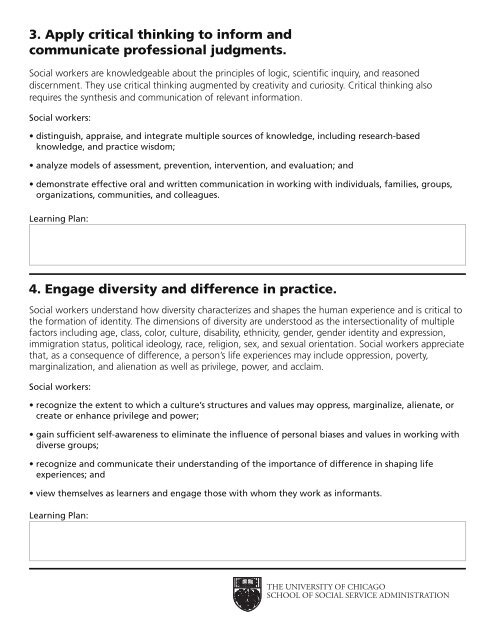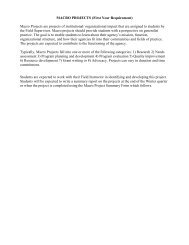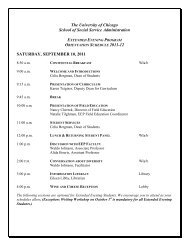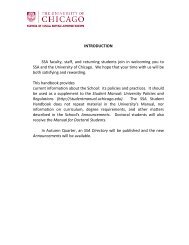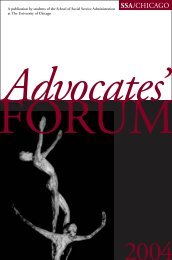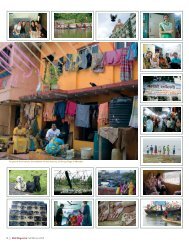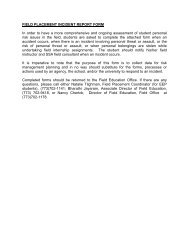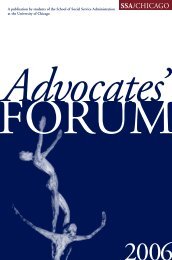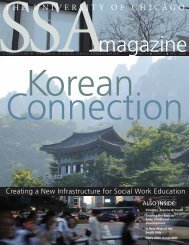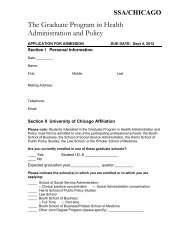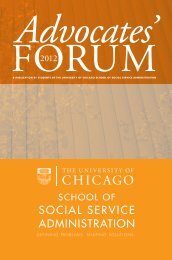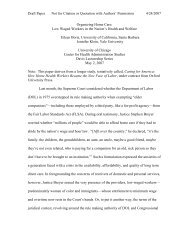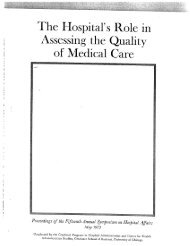The University of Chicago School of Social Service Administration
The University of Chicago School of Social Service Administration
The University of Chicago School of Social Service Administration
- No tags were found...
You also want an ePaper? Increase the reach of your titles
YUMPU automatically turns print PDFs into web optimized ePapers that Google loves.
3. Apply critical thinking to inform andcommunicate pr<strong>of</strong>essional judgments.<strong>Social</strong> workers are knowledgeable about the principles <strong>of</strong> logic, scientific inquiry, and reasoneddiscernment. <strong>The</strong>y use critical thinking augmented by creativity and curiosity. Critical thinking alsorequires the synthesis and communication <strong>of</strong> relevant information.<strong>Social</strong> workers:• distinguish, appraise, and integrate multiple sources <strong>of</strong> knowledge, including research-basedknowledge, and practice wisdom;• analyze models <strong>of</strong> assessment, prevention, intervention, and evaluation; and• demonstrate effective oral and written communication in working with individuals, families, groups,organizations, communities, and colleagues.Learning Plan:4. Engage diversity and difference in practice.<strong>Social</strong> workers understand how diversity characterizes and shapes the human experience and is critical tothe formation <strong>of</strong> identity. <strong>The</strong> dimensions <strong>of</strong> diversity are understood as the intersectionality <strong>of</strong> multiplefactors including age, class, color, culture, disability, ethnicity, gender, gender identity and expression,immigration status, political ideology, race, religion, sex, and sexual orientation. <strong>Social</strong> workers appreciatethat, as a consequence <strong>of</strong> difference, a person’s life experiences may include oppression, poverty,marginalization, and alienation as well as privilege, power, and acclaim.<strong>Social</strong> workers:• recognize the extent to which a culture’s structures and values may oppress, marginalize, alienate, orcreate or enhance privilege and power;• gain sufficient self-awareness to eliminate the influence <strong>of</strong> personal biases and values in working withdiverse groups;• recognize and communicate their understanding <strong>of</strong> the importance <strong>of</strong> difference in shaping lifeexperiences; and• view themselves as learners and engage those with whom they work as informants.Learning Plan:


